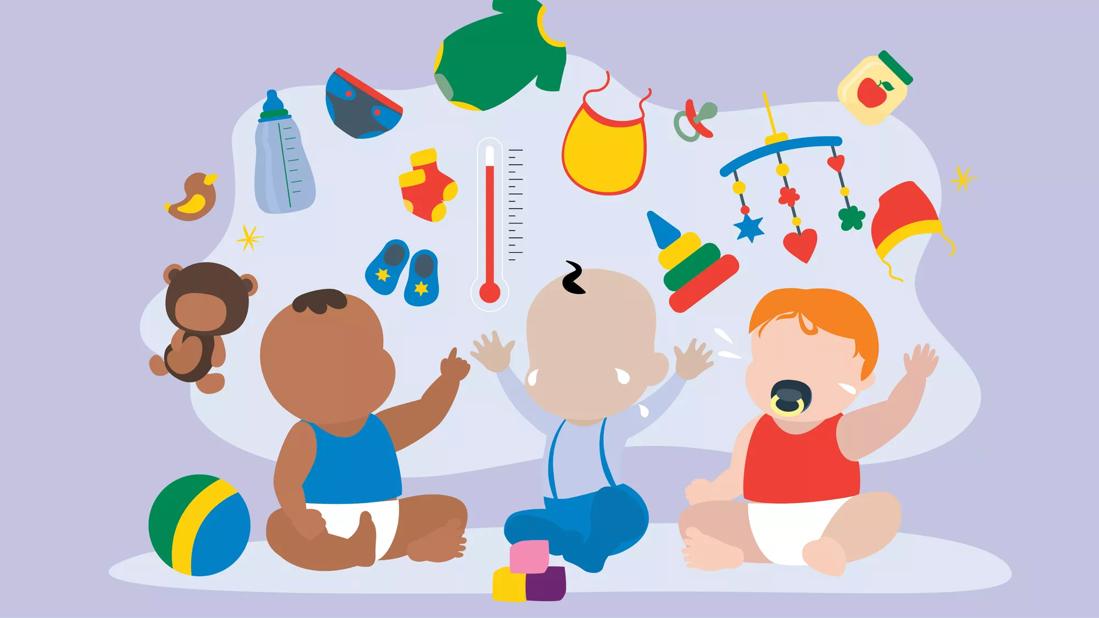You can help strengthen your child’s immune system by focusing on hand washing and staying up-to-date on their vaccines

It’s just a fact of life that kids are germy … and that groups of kids are bound to bring (and spread) germs. Even at the cleanest of daycare centers, kids inevitably put dirty hands and toys in their mouths, and then they rub their eyes.
Advertisement
Cleveland Clinic is a non-profit academic medical center. Advertising on our site helps support our mission. We do not endorse non-Cleveland Clinic products or services. Policy
The next thing you know, they’ve caught any number of common “daycare diseases,” like:
So, yeah, germs are a given. But is that reason to avoid daycare centers and keep your kids hygienically harbored at home?
No, says pediatrician Amy Sniderman, MD.
Dr. Sniderman weighs in on some of your most pressing questions about how to boost your kids’ immune systems and keep them healthy at daycare and beyond.
If you have a baby who goes to daycare and your best friend has a child of the same age who doesn’t, you probably can’t help but play the comparison game. Every time your kid comes home sick, you find yourself wondering: How come her baby always seems so healthy compared to mine?!
“It may feel that way, at least at first,” Dr. Sniderman says, “but most kids get the same germs at one time or another.” Your child just happens to be getting sick first — and your friend’s child’s time is likely to come soon.
According to a study by the National Institute of Child Health and Human Development, kids in daycare do get sick more often than kids at home … right up until age 3, when infection rates even out. And in kindergarten and first grade, infection rates are actually higher in kids who didn’t attend daycare, as they’re often encountering certain germs for the first time.
Advertisement
“In my practice, it seems that kids who didn’t go to daycare get sick more often once they start school,” Dr. Sniderman relays.
In theory, yes. This is called the hygiene hypothesis: The idea that children who are exposed to more viruses, bacteria and other pathogens early in life build stronger immune systems.
Once your kid has been exposed to a virus, their body develops antibodies that help it combat that particular virus strain. This prepares their immune system to fight off the same virus next time.
But viruses are tricky. Unfortunately, Dr. Sniderman explains that each virus has multiple strains — sometimes hundreds of them! — which is why catching a cold once doesn’t prevent you from catching a cold again in the future.
You’re not going to love this advice, but one of the first things you have to do is accept the reality of parenthood.
“All children get sick at some point,” Dr. Sniderman states. “Parents should accept that they can’t protect their kids from every illness, whether they’re in daycare or not.”
That said, there are things you can do to help strengthen your child’s immune system and keep them healthy at daycare and beyond.
Other healthy practices, like eating nutritious foods, getting enough sleep, playing outdoors and drinking enough water, are all important ways to keep kids healthy and help strengthen their immune systems.
Advertisement

Sign up for our Health Essentials emails for expert guidance on nutrition, fitness, sleep, skin care and more.
Learn more about our editorial process.
Advertisement

Most kids start losing baby teeth around age 6 — but there’s some wiggle room in the timeline

From playful movement to strength-building, kids need exercise to stay healthy and strong

Combat summer learning loss and keep young brains engaged with low-pressure learning

Heap on the praise for a job well done and stay consistent

Have their eyes evaluated shortly after birth, before their first birthday, and at ages 3, 5 and beyond

Routine screenings at school are normal and important

Teaching kids how to share at the appropriate age can help them develop social skills and manage their emotions

By disrupting a child’s ability to think and act for themselves, snowplow parents run the risk of delaying their child’s ability to learn

Even small moments of time outdoors can help reduce stress, boost mood and restore a sense of calm

A correct prescription helps your eyes see clearly — but as natural changes occur, you may need stronger or different eyeglasses

Both are medical emergencies, but they are very distinct events with different causes